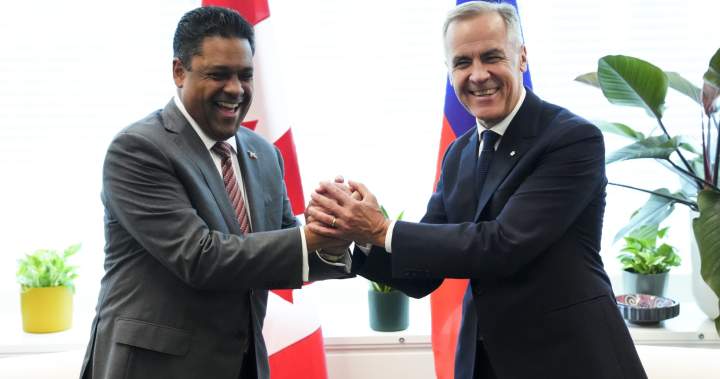In a significant escalation of international involvement, Canada announced a $60 million commitment to help stabilize Haiti’s deteriorating security situation, aligning with a broader U.S.-coordinated multinational security mission. The funding, announced Thursday, represents Ottawa’s most substantial financial investment yet in addressing the Caribbean nation’s spiraling gang violence crisis.
The deployment comes as Haiti faces what many experts describe as its most severe security collapse in decades, with armed gangs controlling approximately 80% of Port-au-Prince. The violence has created a humanitarian emergency affecting millions of Haitians who now face severe food insecurity, limited access to healthcare, and widespread displacement.
“What we’re witnessing in Haiti isn’t simply a security challenge—it’s a full-scale humanitarian crisis that demands immediate, coordinated international action,” said Foreign Affairs Minister Mélanie Joly during the funding announcement in Ottawa. “This contribution represents Canada’s commitment to helping Haitian people reclaim their security and rebuild their institutions.”
The Canadian contribution will support the Multinational Security Support Mission, a Kenya-led initiative endorsed by the United Nations Security Council. Kenya has already deployed 400 police officers to Haiti, with more reinforcements expected from Jamaica, Belize, Barbados, and other Caribbean nations in coming weeks.
According to government officials, Canada’s funding will primarily finance operational costs, equipment procurement, and specialized training for the multinational force. This approach reflects Canada’s strategic decision to provide financial backing rather than deploying Canadian military or police personnel directly into Haiti’s volatile urban conflict zones.
Prime Minister Justin Trudeau emphasized the importance of international solidarity during a press conference, stating, “Haiti’s challenges cannot be solved by any single nation. This requires a coordinated global response that respects Haitian sovereignty while providing the immediate security assistance needed to stabilize communities and allow humanitarian aid to reach those most in need.”
The security situation has deteriorated dramatically since the 2021 assassination of President Jovenel Moïse, creating a power vacuum that armed groups quickly exploited. Recent reports from humanitarian organizations indicate that gang violence has displaced over 360,000 Haitians internally, with kidnappings, sexual violence, and targeted killings becoming increasingly commonplace.
Canada’s approach balances its historical ties with Haiti—home to a significant diaspora community within Canada—with realistic assessments of what external intervention can accomplish. Defense Minister Bill Blair acknowledged these complexities, noting, “We’re focusing our contribution where it can have maximum impact while supporting Haitian-led solutions to what remains fundamentally a Haitian challenge.”
Haiti’s interim government, led by Prime Minister Garry Conille, has welcomed international assistance but faces significant challenges in reestablishing state authority. Many political analysts have questioned whether external security forces can succeed without addressing the underlying governance failures and economic desperation that fuel gang recruitment.
The $60 million pledge adds to approximately $123 million in humanitarian assistance Canada has provided to Haiti since 2022. However, aid organizations continue to report severe difficulties in delivering essentials like food, medicine, and clean water due to roadblocks, extortion, and violence targeting humanitarian workers.
“The security mission represents just one component of what must be a comprehensive approach,” explained Sebastien Carrière, Canada’s ambassador to Haiti. “Alongside security improvements, we need parallel progress on political dialogue, economic opportunity, and institutional strengthening.”
As this latest international intervention unfolds, the critical question remains: Will this multinational effort finally break the cycle of violence and instability that has plagued Haiti for generations, or will it become another chapter in the country’s long history of complicated foreign interventions with limited lasting impact?










